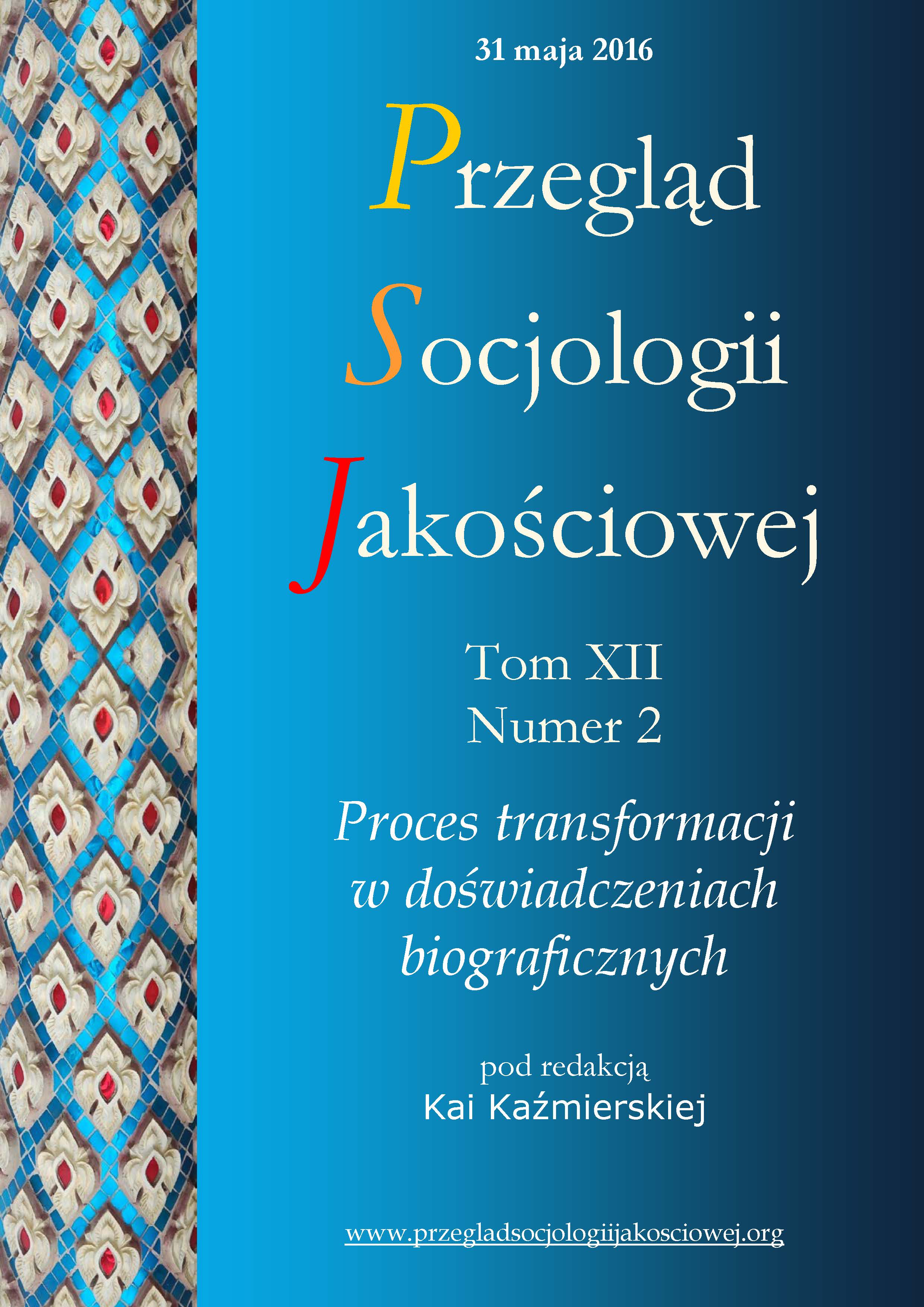Official vs. Manager—Transformations of the Role of Supervisor in Cultural Institution
DOI:
https://doi.org/10.18778/1733-8069.12.2.10Keywords:
Transformation of Institutions, Cultural Policy, Newspeak, Cultural Organizations, Political TransformationAbstract
The article presents the silhouettes of directors of one cultural institution—its organizer and his successor. Their statements reflect the changes that have affected this type of facilities and resulted from political and economic transformation. These changes were related to the reform of local government and decentralization of cultural policy after 1989.
The first part of the article contains a description of the assumptions and methodology of the project from which the interviews at hand derive, as well as a description of empirical material. A comparative summary of both directors’ statements is preceded by their short metrics. The presentation of micro-narratives is divided into four thematic areas: the careers of both narrators, the vision of the institution (the role of cultural centers and their assigned tasks in respondents’ opinions), the principles of operation and potential obstacles to institutional activities, anticipated recipients of the cultural offer. Overall, the analysis of the most interesting topics that appeared in the statements of the two directors, which may be helpful to answer questions related to the nature of the transformation of cultural institutions, closes the whole study. One of the most important points is how the current shape of the centers of this type results from the clash of existing structures with new requirements posed to institutionalized culture, and the functioning of civil society, as well as the development of creative industries, related to the areas at hand.
Downloads
References
Adamiak Piotr i in. (2013) Współpraca w obszarze kultury – samorządy, publiczne instytucje kultury, organizacje pozarządowe. Warszawa: Stowarzyszenie Klon/Jawor [dostęp 6 stycznia 2016 r.]. Dostępny w Internecie: http://www.nck.pl/media/study/kultura_wspolpraca.pdf
Google Scholar
Bihr Alain (2008) Nowomowa neoliberalna. Przełożyła Agata Łukomska. Warszawa: Instytut Wydawniczy Książka i Prasa.
Google Scholar
Borowska Monika i in. (2012) Docenić bibliotekę. Jak skutecznie prowadzić rzecznictwo. Warszawa: Fundacja Rozwoju Społeczeństwa Informacyjnego.
Google Scholar
Dąbrowski Michał i in. (2013) Lokalne centrum kultury. Zrób to z innymi. Kraków: Małopolski Instytut Kultury [dostęp 6 stycznia 2016 r.]. Dostępny w Internecie: http://www.slideshare.net/mik_krakow/lokalne-centru,m-kultury-zrb-to-z-innymi
Google Scholar
Głowiński Michał (2009) Nowomowa i ciągi dalsze. Kraków: Universitas.
Google Scholar
Kłosowski Wojciech, red. (2011) Kierunek kultura. W stronę żywego uczestnictwa w kulturze. Warszawa: Mazowieckie Centrum Kultury i Sztuki.
Google Scholar
Kowalik Wojciech i in. (2013) Kompetencje kadr kultury a rozwój kapitału społecznego. Kraków [dostęp 6 stycznia 2016 r.]. Dostępny w Internecie: http://www.slideshare.net/mik_krakow/kompetencje-kadr-kultury-raport
Google Scholar
Kozłowski Marcin i in., red. (2014) Fabryka sztuki. Raport z badań Wolnego Uniwersytetu Warszawy. Warszawa: Fundacja Bęc Zmiana [dostęp 6 stycznia 2016 r.]. Dostępny w Internecie: https://issuu.com/beczmiana/docs/fabryka_sztuki
Google Scholar
Nowiński Jacek (2011) Instytucje kultury na wsi i w małych miastach [w:] Izabella Bukraba-Rylska, Wojciech Józef Burszta, red., Stan i zróżnicowanie kultury wsi i małych miast w Polsce. Warszawa: Narodowe Centrum Kultury, s. 103–140.
Google Scholar
Rokicka Ewa, Kruczkowska Patrycja, red. (2013a) Ekskluzja w dyskursie instytucji kultury. Łódź: Katedra Socjologii Ogólnej [dostęp 6 stycznia 2016 r.]. Dostępny w Internecie: http://www.obserwatorium.uni.lodz.pl/wp-content/uploads/2013/10/raport.pdf
Google Scholar
Rokicka Ewa, Kruczkowska Patrycja, red. (2013b) Oblicza ekskluzji. Praktyka działania instytucji kultury a przełamywanie barier dostępu. Łódź: Katedra Socjologii Ogólnej [dostęp 6 stycznia 2016 r.]. Dostępny w Internecie: http://www.obserwatorium.uni.lodz.pl/wpcontent/uploads/2013/10/publikacja_internetowa.pdf
Google Scholar
Tarkowska Elżbieta, red. (2013) Dyskursy ubóstwa i wykluczenia społecznego. Warszawa: Wydawnictwo IFiS PAN.
Google Scholar
Downloads
Published
How to Cite
Issue
Section
License

This work is licensed under a Creative Commons Attribution-NonCommercial-NoDerivatives 4.0 International License.














